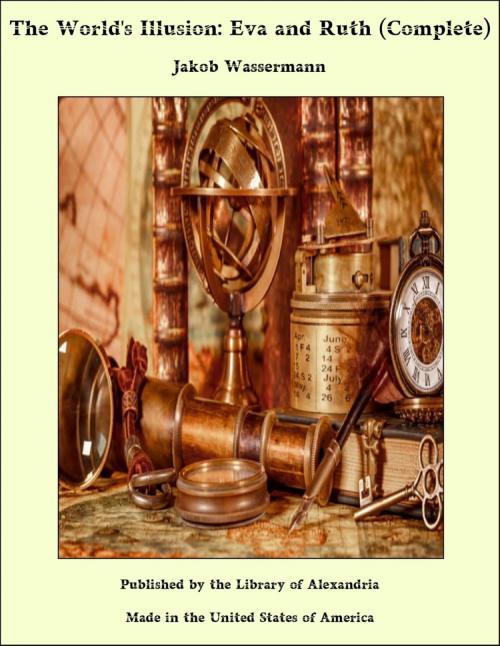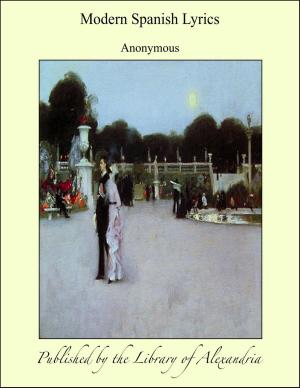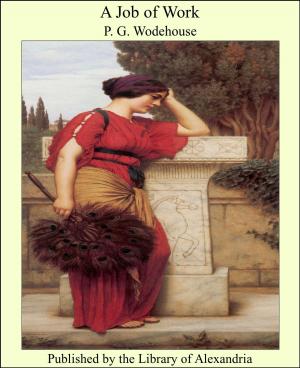The World's Illusion: Eva and Ruth (Complete)
Nonfiction, Religion & Spirituality, New Age, History, Fiction & Literature| Author: | Jakob Wassermann | ISBN: | 9781465622150 |
| Publisher: | Library of Alexandria | Publication: | March 8, 2015 |
| Imprint: | Language: | English |
| Author: | Jakob Wassermann |
| ISBN: | 9781465622150 |
| Publisher: | Library of Alexandria |
| Publication: | March 8, 2015 |
| Imprint: | |
| Language: | English |
From the days of his earliest manhood, Crammon, a pilgrim upon the paths of pleasantness and delight, had been a constant wayfarer from capital to capital and from country-seat to country-seat. He came of an Austrian family whose landed estates lay in Moravia, and his full name was Bernard Gervasius Crammon von Weissenfels. In Vienna he owned a small but beautifully furnished house. Two old, unmarried ladies were its guardians—the Misses Aglaia and Constantine. They were his distant kinswomen, but he was devoted to them as to sisters of his blood, and they returned his affection with an equal tenderness. On an afternoon in May the two sat by an open window and gazed longingly down into the street. He had announced the date of his arrival by letter, but four days had passed and they were still waiting in vain. Whenever a carriage turned the corner, both ladies started and looked in the same direction. When twilight came they closed the window and sighed. Constantine took Aglaia’s arm, and together they went through the charming rooms, made gleamingly ready for their master. All the beautiful things in the house reminded them of him, just as every one of them was endeared to him because it united him to some experience or memory. Here was the chiselled fifteenth century goblet which the Marquis d’Autichamps had given him, yonder the agate bowl bequeathed him by the Countess Ortenburg. There were the coloured etchings, part of the legacy of a Duchess of Gainsborough, the precious desk-set which he had received from the old Baron Regamey, the Tanagra figurines which Felix Imhof had brought him from Greece. There, above all, was his own portrait, which the English artist Lavery had painted on an order from Sir Charles MacNamara. They knew these things and esteemed them at their true worth. They stopped before his picture, as they so often delighted to do. The well rounded face wore a stern, an almost sombre expression. But that expression seemed deceptive, for a tell-tale gleam of worldly delight, of irony and roguishness, played about the clean-shaven lips. When night fell the two ladies received a telegram informing them that Crammon had been forced to put off his return home for a month. They lit no lights after that, and went sadly to bed.
From the days of his earliest manhood, Crammon, a pilgrim upon the paths of pleasantness and delight, had been a constant wayfarer from capital to capital and from country-seat to country-seat. He came of an Austrian family whose landed estates lay in Moravia, and his full name was Bernard Gervasius Crammon von Weissenfels. In Vienna he owned a small but beautifully furnished house. Two old, unmarried ladies were its guardians—the Misses Aglaia and Constantine. They were his distant kinswomen, but he was devoted to them as to sisters of his blood, and they returned his affection with an equal tenderness. On an afternoon in May the two sat by an open window and gazed longingly down into the street. He had announced the date of his arrival by letter, but four days had passed and they were still waiting in vain. Whenever a carriage turned the corner, both ladies started and looked in the same direction. When twilight came they closed the window and sighed. Constantine took Aglaia’s arm, and together they went through the charming rooms, made gleamingly ready for their master. All the beautiful things in the house reminded them of him, just as every one of them was endeared to him because it united him to some experience or memory. Here was the chiselled fifteenth century goblet which the Marquis d’Autichamps had given him, yonder the agate bowl bequeathed him by the Countess Ortenburg. There were the coloured etchings, part of the legacy of a Duchess of Gainsborough, the precious desk-set which he had received from the old Baron Regamey, the Tanagra figurines which Felix Imhof had brought him from Greece. There, above all, was his own portrait, which the English artist Lavery had painted on an order from Sir Charles MacNamara. They knew these things and esteemed them at their true worth. They stopped before his picture, as they so often delighted to do. The well rounded face wore a stern, an almost sombre expression. But that expression seemed deceptive, for a tell-tale gleam of worldly delight, of irony and roguishness, played about the clean-shaven lips. When night fell the two ladies received a telegram informing them that Crammon had been forced to put off his return home for a month. They lit no lights after that, and went sadly to bed.















